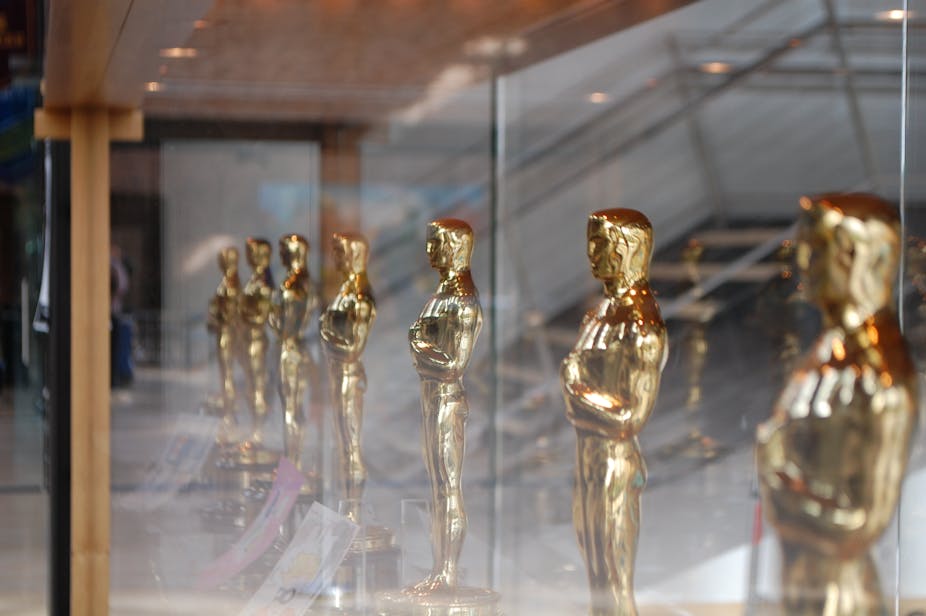It’s that season, and the award shows have begun, culminating for many in the Oscars. There are, as always, heavy favourites, films nominated numerous times, shows, musicians and actors. But one has to wonder: what does being a winner mean?
If art were a discipline like science, would we have any less of a problem sorting the wheat from the chaff? Over time, perhaps, but in the short-term: no. The subjective nature of value, a problem noticed among economists (and philosophers) in the mid-nineteenth century, is at the heart of the problem of measurement in anything other than the hard sciences.
Simply put: if we try to measure how anyone values something by their external behaviour, we can never hope to understand the highly complex chain of relations leading to their decision. Thus, in economics, we will never have what we’d hope for in a science: an exact theory that describes what’s going on in an economy at any scale. We cannot account for taste, let alone make an accounting of taste, or tastes, or the sum of tastes.
I used to watch awards shows, especially the Oscars, because I am a bona fide movie junkie, I’d watch anything on a large enough screen. Like everyone else, I entered with my favourites, and rooted for them like thoroughbreds at the track. Like many of you, I found some of the picks puzzling, and disappointment was a frequent emotion. What the hell were they thinking, I’d muse as the clear best picture, most years, was overlooked for some other, lesser work.

The phenomenon began decades ago for me in music, so I sloughed off the Grammys long ago. I left the Oscars behind about five years ago, soon after No Country for Old Men beat out There Will be Blood for nearly everything. I suppose then I finally lost my faith. I’m not going to argue the merits of the pick, I’ve expended too much energy over too many debates with friends and family about that damnable, insane rout. That travesty. And I never once changed someone’s mind. That’s the point.
In science, we have an informal institution that measures value, and it isn’t the Nobel Prize. It’s science. The body that comprises science isn’t made of gold or handed out by tuxedoed or sequined presenters. The sum of science is its publications, bad or good, groundbreaking or incremental. Out of this great enterprise, a picture of nature as it is emerges, replacing notions of how nature isn’t.
Newton and all the rest stand on the shoulders of giants, and we, all of us, benefit from the result. Sometimes important scientists are justly recognised for their contributions, sometimes unjustly, by the Nobel committee. But the real work, the hard work, the good work, sometimes isn’t appreciated until long after the scientists who did it have died. Often, it’s never recognised or attributed to any one or number of scientists, it’s just there in the body of data that grounds some new, successful hypothesis, or old successful theory. Could art be like that? Should it?
I think it could be, and ponder if we wouldn’t all be better off taking the horse out of the race and watching it graze a bit, amble around, and play. See how it survives the seasons. In science, as in art, too much competition can undermine the truth. Too often we see people cheat to get recognition, grants, publications, rather than letting the institution work as it should, slowly over time, separating through experience and experiment the good from the bad.

Add to this the way in which art is even more complex, since our tastes vary so greatly, and are often incommensurable. Perhaps we shouldn’t give awards until decades after a piece of art has been out, take a lesson even from the Nobel prize in the sciences, which may wait a while since a paper’s been published or a theory’s been confirmed (as with the Higgs boson, whose namesake devised the concept 40 years before winning the prize). Or maybe, we could just watch and enjoy what we like, let the market decide what’s worth it, over time, and stop getting suckered into watching actors congratulating themselves in overly long, barely bearable Hollywood extravaganzas.
John-Paul Sartre, in refusing the Nobel prize in literature, explained it well, and it applies in art as in science:
The writer must therefore refuse to let himself be transformed into an institution, even if this occurs under the most honourable circumstances, as in the present case.
The institutions that must exist cannot be people, they can only be art and science, or whatever the field is in itself. When we laud people, as we are apt to do, then we lose the soul of the enterprise: the quest to create, to discover, and to revel in truth and beauty.
This is a foundation essay for The Conversation’s new UK Arts + Culture section. If you are an academic or researcher with relevant expertise and would like to respond to this article, please use our pitch facility.

